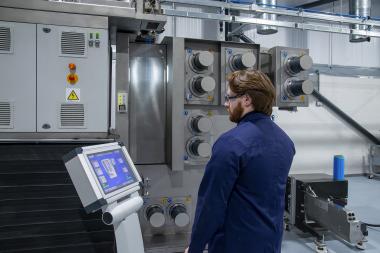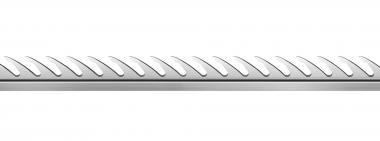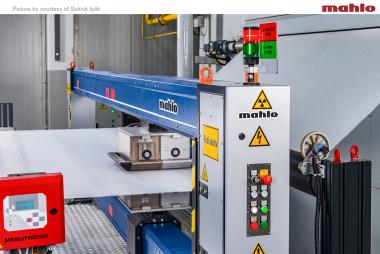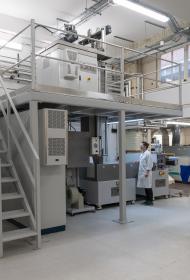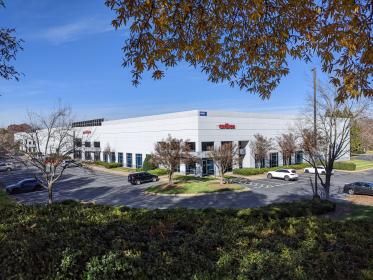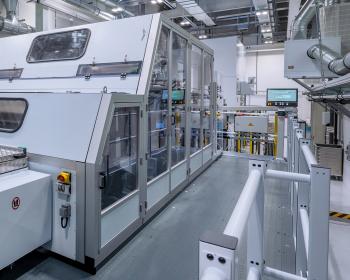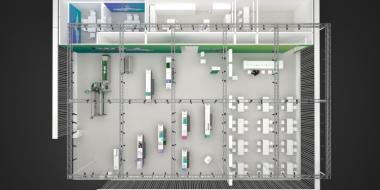FET exhibits at ITMA 2023
Fibre Extrusion Technology Ltd (FET) of Leeds, UK will be exhibiting at ITMA 2023, taking place between 8-14 June Milan, Italy. FET has commissioned its biggest ever stand to reflect the company’s commitment to this event and the textile industry.
FET designs, develops and manufactures extrusion equipment for a wide range of high value textile material applications worldwide. Central to FET’s success has always been its ability to provide customers with advanced facilities and equipment, together with unrivalled knowledge and expertise in research and production techniques.
The new FET Fibre Development Centre will further improve this service, allowing clients to trial their own products in an ideal environment. Resident equipment in the Fibre Development Centre reflects the wide range of fibre extrusion systems offered by FET to clients worldwide and will enable continued growth of the company through innovation.
For the first time at ITMA, the new FET Spunbond range will feature. This system provides opportunities for the scaled development of new nonwoven fabrics based on a wide range of fibres and polymers, including bicomponents. Recent customers to benefit from FET spunbond systems include the University of Leeds and an integrated metlblown / spunbond system at the University of Erlangen-Nuremberg in Germany.
FET’s established expertise remains in laboratory and pilot meltspinning equipment for a vast range of applications, such as precursor materials used in high value technical textiles, sportswear, medical devices and specialised novel fibres from exotic and difficult to process polymers. FET has successfully processed almost 30 different polymer types in multifilament, monofilament and non-woven formats, collaborating with specialist companies worldwide to promote greater sustainability through innovative manufacturing processes. Where melt spinning solutions are not suitable, FET provides a viable alternative with pilot and small scale production wet spinning systems.
A major theme at ITMA will again be sustainability. The FET range of laboratory and pilot extrusion lines is ideally suited for both process and end product development of sustainable materials. “This year we are celebrating FET’s 25th anniversary” says FET Managing Director Richard Slack “and we look forward to meeting customers at ITMA, where we can discuss their fibre technology needs.”
Fibre Extrusion Technology FET ITMA ITMA 2023 spunbond technology meltspinning Sustainability
Fibre Extrusion Technology Ltd


